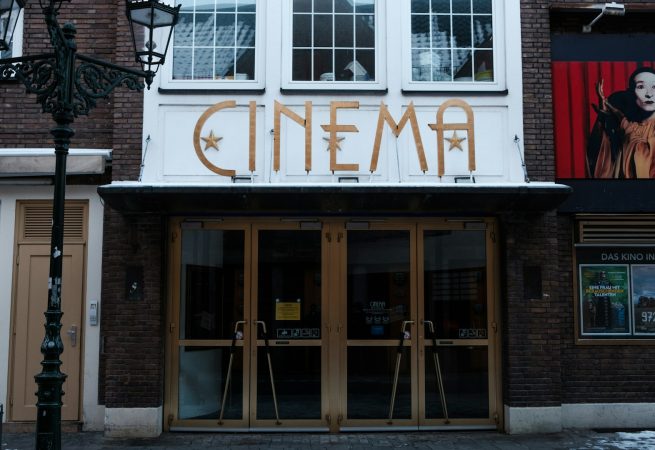

“Woke” Snow White Reboot Flops at the Box Office — Is Rachel Zegler to Blame?
Disney’s highly anticipated live-action remake of Snow White has turned into a major box office failure, earning the dubious honour of being one of the worst-rated films by both critics and audiences in recent memory. Despite a staggering production budget of $250 million, the film is expected to deliver only financial losses. As the studio scrambles to understand what went wrong, much of the blame is being directed at the film’s lead actress, Rachel Zegler.
From the outset, the project seemed cursed. Production was plagued by pandemic-related shutdowns, a Hollywood actors’ strike, and a series of controversies that fuelled criticism well before the film’s release. Among the most contentious points were the film’s casting choices and attempts to modernise the beloved 1937 animated classic — efforts that many fans saw as forced or unnecessary.
Rachel Zegler, known for her vocal political views, became a lightning rod for criticism. She openly criticised the original Snow White, calling it outdated, and publicly expressed support for Palestine and opposition to Donald Trump. Her comments created a backlash online, with some fans accusing her of disrespecting the legacy of the original film and alienating a significant portion of the potential audience.
Rewriting a Classic
The 1937 version of Snow White is widely regarded as a cinematic masterpiece, both in the realm of animation and storytelling. It was Disney’s first full-length animated feature and set the standard for generations of animated films. In line with recent trends, Disney has spent the past decade revisiting its animated back catalogue, releasing live-action remakes of classics like Aladdin, Beauty and the Beast, and The Little Mermaid.
However, the attempt to adapt Snow White for 21st-century audiences has not gone smoothly. One of the most visible changes is the casting of Zegler, a Latina actress, in the lead role. In the original Grimm tale and Disney version, Snow White is named for the fairness of her skin — something the new film reinterprets by attributing the name to her being born during a snowstorm.
The seven dwarfs — iconic characters in the original — have also undergone a radical transformation. In this adaptation, they are replaced by mythical creatures rendered in CGI, a move intended to avoid offending individuals with dwarfism. Yet their digital depiction has been widely criticised as awkward and unappealing.
Additionally, the romantic subplot has been revised. Gone is the classic song Someday My Prince Will Come, and with it, the prince himself. In his place is a reimagined character — a well-meaning thief — who ultimately wins Snow White’s heart. The princess, meanwhile, has been portrayed as an empowered heroine who no longer cooks or cleans for others but instead encourages shared responsibility among her companions.
A Film Released at the Wrong Time
The release of Snow White comes at a moment when “woke” culture is facing growing pushback in the United States, particularly after Donald Trump’s recent political resurgence. In this context, Disney’s reimagining of Snow White — notably marketed without reference to the “Seven Dwarfs” — may have missed the mark.
Directed by Marc Webb and released on 21 March, the film grossed just $44.3 million during its opening weekend in the US — well below pre-release expectations of $45–55 million. Worldwide, the film managed to earn $87 million, making it the weakest domestic debut for any Disney live-action remake.
Given the high production and promotional costs, experts say it is virtually impossible for the film to break even, let alone turn a profit. The commercial and critical failure of Snow White raises serious questions about Disney’s current strategy of reinterpreting classic stories through a contemporary lens — especially when it alienates both nostalgic audiences and new viewers.
In the end, while Rachel Zegler may not be solely responsible for the film’s failure, her role at the centre of its controversy cannot be ignored. For Disney, this flop serves as a stark reminder that even beloved fairy tales are not immune to modern-day culture wars.

Tulsa King Season 2: Release Date and How to Watch for Free
Sylvester Stallone is back as Dwight “The General” Manfredi in the much-anticipated second season of Tulsa King. This crime drama, streaming on Paramount+ later this week, sees the legendary actor reprising his role as a Mafia capo from New York’s Invernizzi crime family who finds himself navigating unfamiliar territory after a 25-year prison sentence.
A New Empire in Tulsa
The series follows Dwight’s journey after being exiled by his boss to Tulsa, Oklahoma—a place far removed from the criminal underworld he once knew. Tasked with establishing operations in this foreign environment, Dwight soon realises his mob family may not have his best interests at heart. Determined to build his own empire, he assembles a ragtag crew of unlikely allies, creating a new criminal operation from scratch.
Season two picks up with Dwight and his team continuing to expand and protect their growing empire. However, their success attracts new adversaries. With threats from the Kansas City mob and a formidable local businessman, Dwight faces mounting pressure to protect his crew and family while juggling the complexities of his rising empire.
Record-Breaking Success
The first season of Tulsa King was a major hit for Paramount+, drawing in 3.7 million viewers for its premiere episode. The show also drove a record-breaking number of new subscriptions to the platform, solidifying its status as one of Paramount’s standout productions.
The Creative Minds Behind the Series
Created by Taylor Sheridan, the mastermind behind the widely acclaimed Yellowstone, Tulsa King brings together a dynamic cast and sharp storytelling. Stallone not only stars in the series but has also co-written several episodes of the new season, marking his first leading role in a television series.
The cast includes Annabella Sciorra, Tatiana Zappardino, Andrea Savage, Martin Starr, Max Casella, Domenick Lombardozzi, Vincent Piazza, Jay Will, Garrett Hedlund, and Dana Delany. Together, they bring a mix of talent that adds depth and intrigue to the series.
How to Watch Season 2
Fans eager to dive back into Dwight’s world can catch the new season exclusively on Paramount+. While subscription fees apply, the streaming service often offers free trial periods, allowing new users to enjoy the latest episodes without immediate cost.
With its gripping storyline, standout performances, and escalating tension, season two of Tulsa King promises to deliver more of the action and drama that made the first season a hit. Don’t miss the return of this compelling crime saga.

Monty Don Reflects on a Heartfelt Moment from His Past
Monty Don, the beloved 69-year-old presenter of BBC Gardeners’ World, recently opened up about a poignant memory from his younger years. He described a deeply emotional moment shared with his wife, Sarah, as they drove past a field of barley, which evoked a powerful sense of nostalgia.
In an interview with The Telegraph, Monty recalled a childhood experience that left a lasting impression. At just seven years old, he returned home from boarding school to discover that the family garden had “burst into flower.” He likened the sensation to missing Christmas—a bittersweet realization, though not necessarily a sense of loss.
Years later, during his twenties, a simple drive through the countryside reignited this childhood memory. Reflecting on the moment, Monty shared: “Sarah and I were driving out of London towards Kent, passing a field full of barley. Barley has a unique way of rippling in the wind, unlike wheat, which tends to rustle. That subtle difference transported me back to my childhood in Hampshire.”
He continued: “The sight triggered an intense homesickness. My whole childhood felt tied to the ripple of barley in the fields. Realizing that this idyllic period, the good parts of it, was forever gone was utterly heartbreaking.”
Monty went on to reflect on the contrasting emotions tied to different aspects of his upbringing. While the barley fields symbolized a cherished connection to his home, he had less fond memories of his boarding school years. He described the landscape around the school as dominated by “dark, dull, horrible” rhododendrons, pines, and heathers—plants he associated with unpleasant times. In stark contrast, his home was adorned with beautiful beeches and fragrant lilacs, which he still remembers fondly.
As he looked back, Monty candidly acknowledged that his teenage years were far from idyllic. Speaking to the Mirror, he admitted that flowers and gardening were not part of his adolescence. Instead, he described those years as filled with “sex, drugs, and rock and roll.” He even revealed that he was expelled from several schools during this rebellious period of his life.
This blend of heartfelt nostalgia and candid honesty offers a glimpse into the life of the much-loved gardening expert, whose passion for nature seems rooted in both the highs and lows of his formative years.










